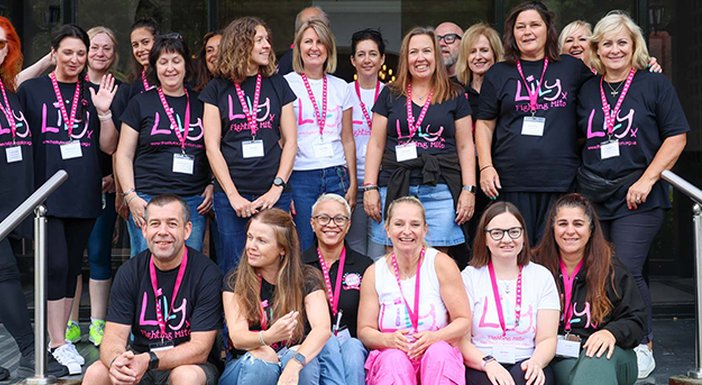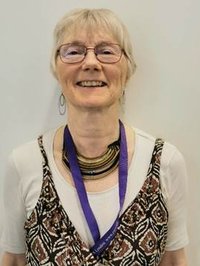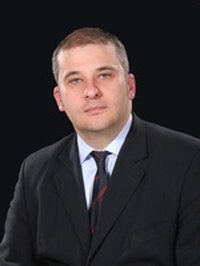We’re privileged to work alongside some of the NHS’s top specialists in mitochondrial disease. Our dedicated medical board offer us invaluable support, generously contributing their time and expertise.
They keep us informed on the latest breakthroughs in mito research, ensure that the medical information on our website is accurate and up-to-date, and are always available to answer specific questions from our community. Their guidance is essential in advancing our mission and supporting those affected by mitochondrial disease.
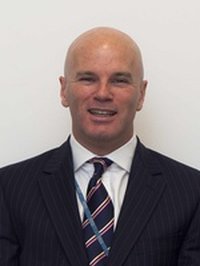
Prof Robert McFarland
Professor of Paediatric Mitochondrial Medicine, Honorary Consultant Paediatric Neurologist. Director of the Highly Specialised Service for Rare Mitochondrial Disorders of Adults & Children, Newcastle University
Professor Bobby McFarland began his research career over 20 years ago in the Mitochondrial Research Group at Newcastle University, where he identified a novel mitochondrial DNA mutation in a local family from the North East. Inspired by this early success, Professor McFarland’s research subsequently expanded to involve gene discovery, determinants of pathogenicity in mitochondrial disease and clinical research projects including the development of clinical assessment tools, drug trials and a mitochondrial disease cohort of >1940 individuals. As Director of the NHS Highly Specialised Service for Rare Mitochondrial Disorders, Professor McFarland leads a team of clinicians, nurses and allied health professionals dedicated to the diagnosis and management of mitochondrial disease who are enthusiastically embedding their research discoveries into clinical practice.
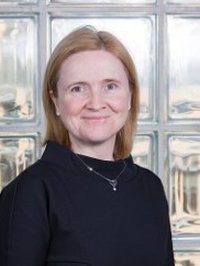
Prof Grainne Gorman
Senior Clinical Lecturer, Consultant Neurologist & Director of the Wellcome Centre for Mitochondrial Research, Newcastle University
Prof Grainne Gorman qualified from the Royal College of Surgeons in Ireland in 1997 and completed her clinical training in neurology in Dublin. She was appointed Honorary Consultant Neurologist at Newcastle upon Tyne Hospitals NHS Foundation Trust in 2010 and became Professor of Neurology in 2020. At the same time, she was appointed Director of the Wellcome Centre for Mitochondrial Research at Newcastle University. Prof Gorman established and now leads the Newcastle Mito Hub – a research group designed to build on the world-class medical science at Newcastle University. She has developed research programmes that a) investigate genotype-phenotype correlations of primary mitochondrial disorders to better understand the basic pathophysiology and b) improve diagnostic yield and identify strategic patient-centred research themes and validated outcomes. Prof Gorman has also established clinical trials in mitochondrial disease in the UK.

Prof Robert Pitceathly
Medical Research Council Clinician Scientist & Honorary Consultant Neurologist, UCL Queen Square Institute of Neurology & The National Hospital for Neurology and Neurosurgery
Prof Robert Pitceathly completed his preclinical and clinical medical degree at St Andrews and Manchester Universities before commencing his post-graduate neurology specialist training in Manchester. He subsequently undertook a PhD in mitochondrial diseases at the UCL Queen Square Institute of Neurology, before obtaining an NIHR academic clinical lecturer post in London. From March 2019 he started a Medical Research Council Clinician Scientist Fellowship with Honorary Consultant status at The National Hospital for Neurology and Neurosurgery, where he co-leads the London NHS England nationally commissioned Rare Mitochondrial Disorders Service. He leads a research group at UCL Queen Square Institute of Neurology that combines clinical observations with laboratory approaches to better understand the molecular basis and pathophysiological mechanisms of mitochondrial diseases, with the aim of developing treatments.
Prof Joanna Poulton
Professor & Honorary Consultant in Mitochondrial Genetics, Oxford
Professor Poulton’s data on the transmission of mitochondrial DNA (“the bottleneck”) were a breakthrough for the feasibility of mtDNA prenatal diagnosis and ultimately for the high-profile mitochondrial replacement therapy, “three-parent babies”. Her current work focuses on exploiting a natural mechanism for recycling damaged mitochondria, called mitophagy, to treat mitochondrial disease.

Prof Shamima Rahman
Professor of Paediatric Metabolic Medicine, UCL & Great Ormond Street Hospital
Prof Shamima Rahman (MA BMBCh PhD FRCP FRCPCH) is Professor of Paediatric Metabolic Medicine at the UCL Great Ormond Street Institute of Child Health (ICH), and a consultant at Great Ormond Street Hospital for Children, London, where she sees children affected by mitochondrial diseases. Professor Rahman established the Mitochondrial Research Group at the UCL Institute of Child Health in 2000, with a particular focus on improving the outcomes for children affected by mitochondrial and other rare metabolic diseases by discovering mitochondrial disease genes, developing novel computational diagnostic strategies, and investigating therapeutic approaches where there are currently no disease-modifying treatments. Professor Rahman is Editor in Chief of the Journal of Inherited Metabolic Disease, a Senior Editor of the Annals of Human Genetics, a member of the Medical Research Council Clinical Training Panel and acts as a special adviser to the UK’s Human Fertilisation and Embryology Authority.
Dr Andrew Schaefer
Consultant Neurologist, Wellcome Centre for Mitochondrial Research, Newcastle University
Dr Andrew Shaefer is a consultant neurologist specialising in neurogenetics and has been associated with The Newcastle Mitochondrial Centre since 2001. Together with three consultant colleagues and support from our multidisciplinary team, he helps run the Newcastle Mitochondrial Clinic and the clinical service for patients. Research interests include the natural history of mitochondrial disorders, phenotype-genotype correlations and determining best clinical practice. Dr Schaefer has published on the prevalence of mitochondrial disorders, and is the clinical lead on the development of best practice guidelines in mitochondrial disease.

Prof Robert Taylor
Professor of Mitochondrial Pathology at the Wellcome Centre for Mitochondrial Research, Newcastle University
Professor Taylor leads a team focusing on mitochondrial gene discovery, molecular diagnostics and the characterisation of mitochondrial genetic disease mechanisms. His research centres on genotype-phenotype correlations in mitochondrial disease pathology, identifying and functionally-characterising more than 30 novel mitochondrial disease genes. He has published over 500 peer-reviewed scientific papers.
His academic research is underpinned by roles within the NHS. Rob is the Head of the UKAS-accredited NHS mitochondrial laboratory in Newcastle which continues to provide Specialised Mitochondrial Genetics services for the North and East of England following national genomics reconfiguration. Regionally and nationally, he brings scientific leadership to genomics through his role as Scientific Director of the Yorkshire and North East Genomic Laboratory Hub, co-Chair of the Rare Disease Genomic Test Evaluation working group and as Chair of the Association of Clinical Genomic Science.


